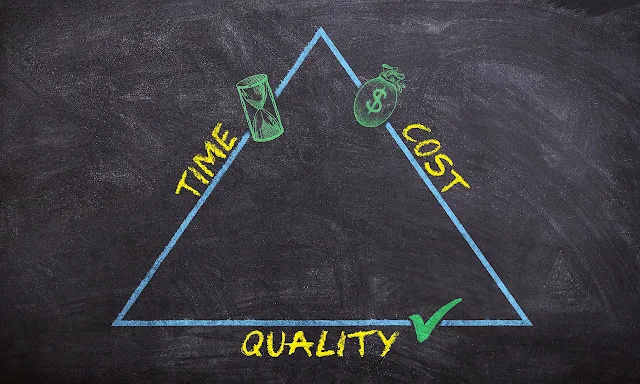Ad Code
Translate
List of 6,000+ Dofollow Commentluv Blogs FREE (Updated 2025)
January 16, 2025
What is Ozempic (semaglutide)? (Updated in 2025)
January 30, 2025
How To Find Suitable Properties In Cyprus? (Updated in 2025)
January 11, 2025
Smart strategies for trading on crypto exchanges
February 18, 2025
Tips for Effective Project Management
Khabza Mkhize
September 20, 2023
Establish Clear Project Objectives and Scope
Before starting any construction project, you must clearly define the project objectives and scope. Before you start, you want to be sure you fully understand client requirements, project deliverables, timelines, and budget constraints. Documenting these details in a comprehensive project contract will ensure alignment among all those involved and serve as a reference point throughout the project.Develop a Detailed Project Plan
Create a detailed project plan that outlines the sequence of activities, dependencies, and timelines. Break the project down into manageable tasks, assign responsibilities, and establish realistic deadlines for each component of the project and the project as a whole. Incorporate contingency plans to address unforeseen challenges and delays, as there is a high chance that there will be at least one hiccup throughout the project. Regularly review and update the project plan to ensure its accuracy and relevance as the project progresses.Build a Competent Project Team
Assemble a competent project team with individuals with the necessary skills and experience for the project. Clearly communicate roles and responsibilities, ensuring each team member understands their contribution to the project goals. It's essential to have a team that has effective communication, collaboration, and teamwork to maximize productivity and problem-solving capabilities throughout the project.Prioritize Communication and Collaboration
Effective communication is the cornerstone of successful project management. Establish open communication lines with everyone involved in the project, including clients, contractors, subcontractors, and suppliers. It is a good idea to have regular project meetings and provide timely updates to ensure everyone is on the same page. Communication is critical to ensuring that a project progresses as it should and is completed promptly.Embrace Technology and Construction Management Software
Leverage technology and construction management software, along with new project management AI tools, to streamline project processes, enhance communication, and improve efficiency. Adopt tools for project scheduling, cost estimation, document management, and collaboration. Implement Building Information Modeling (BIM) for enhanced visualization, coordination, and clash detection. Embracing technology can save time and cost while improving project outcomes.Monitor Progress and Adapt as Needed
Regularly monitor project progress against the project plans to ensure it stays on course. Utilize project management tools to track actual vs. planned progress, budget utilization, and quality benchmarks. Identify any deviations from the plan early on and take corrective actions promptly. Flexibility and adaptability are crucial to navigating the dynamic nature of construction projects. There is a high chance that things may go wrong, but you have to be able to handle the setbacks and adapt.Featured Post
12 Prominent new technologies and trends emerging in 2025
Khabza Mkhize-
April 02, 2025
Soapie Teasers
Sister Sites
Most Popular
List of 6,000+ Dofollow Commentluv Blogs FREE (Updated 2025)
January 16, 2025
Smart strategies for trading on crypto exchanges
February 18, 2025
Popular posts
List of 6,000+ Dofollow Commentluv Blogs FREE (Updated 2025)
January 16, 2025
Smart strategies for trading on crypto exchanges
February 18, 2025
Footer Menu Widget
Created By Blogspot Theme | Distributed By Gooyaabi Templates


0 Comments